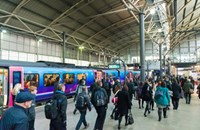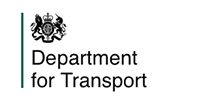
The government is developing plans for Britain’s first digital intercity railway in the north, Transport Secretary Chris Grayling announced today (22 September 2017) as the government invests a record £13 billion in improving journeys across the region.
As part of the Great North Rail Project, major upgrades are being developed for the TransPennine route between Manchester, Leeds and York from 2022 - to slash journey times between Leeds and Manchester to 40 minutes.
Digital signalling technology is already in operation on the London Underground, and Network Rail will now develop options to make the TransPennine route the first digitally controlled intercity rail line in the country.
Network Rail will receive up to £5 million to develop proposals for embedding digital technology between Manchester and York, to help us deliver a more reliable and safer railway. This includes looking at a system of advanced train traffic management – so that a computer works out how to route the trains most efficiently along the line.
This government has launched the biggest modernisation programme of railways in the north since the steam age – and we are investing £40 billion in our network across the country.
The government is also bringing HS2 – Britain’s new railway – to the north, the Pacer trains are being scrapped by the end of 2019 and major investment in motorways is also underway across the region.
Transport Secretary Chris Grayling said:
"We are about to see a digital revolution in our railways, and we want the north to lead the way.
"New technology on the Manchester to York route will help us deliver a more reliable and safer railway, with more space for passengers.
"Travel will be transformed across the north as we invest £13 billion to improve journeys, expand our motorways, scrap the outdated Pacer trains, and spend £55 billion on HS2 to cut journey times between our great northern cities
Developing proposals for digital-control on the TransPennine route is to be paid for from a £450 million digital railway fund announced by the Chancellor in the Autumn Statement last year.
On the London Underground 3 lines already have in-cab signalling, which has meant trains can safely run closer together.
Also in the capital, the Thameslink programme will use digital technologies so 24 trains per hour can run through the centre of the city from December 2018 on just 2 tracks with 2 platforms. Crossrail trains will also run with in-cab signalling.
Work to deliver improvements to the TransPennine railway line have already begun.
The Great North Rail Project has already delivered improved services between Liverpool and Manchester, with the fastest journey cut by 15 minutes, new direct services between Manchester Airport and Glasgow, and the upgrade of Manchester Victoria station.
The government is working with Rail North and councils across the region on the project, and Network Rail is working on plans for the upgrade.
The government is also investing £55 billion in HS2 which will slash journey times between Leeds and Birmingham to 57 minutes from 1 hour 58 minutes today. Journeys between Manchester and London will be reduced to 1 hour and 8 minutes from 2 hours and 8 minutes today.
All of the Pacer trains which run on Northern trains will be phased out by the end of 2019 and sent to the scrapyard, as the government delivers a 21st century revolution to transport.
About The UK Department for Transport
The UK Department for Transport works with our agencies and partners to support the transport network that helps the UK’s businesses and gets people and goods travelling around the country. We plan and invest in transport infrastructure to keep the UK on the move.




Comments
There are no comments yet for this item
Join the discussion